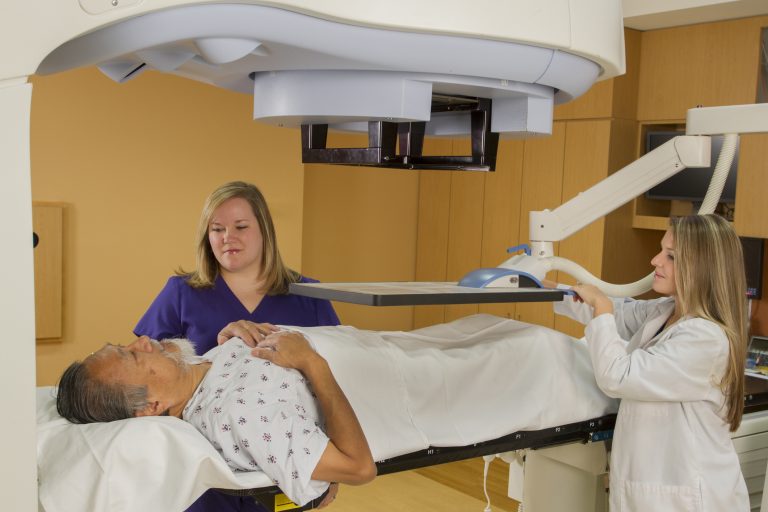
A new meta-analysis finds that a genetic biomarker test accurately predicts how men with high-risk prostate cancer respond to treatment with radiation and hormone therapy. The study, which examined biopsy samples collected from three large, randomized clinical trials, indicates that physicians potentially can use genetic test scores to personalize treatment for men with the most aggressive form of prostate cancer.
Findings were presented this week at the American Society for Radiation Oncology (ASTRO) Annual Meeting: Validation of a 22-gene Genomic Classifier in the NRG Oncology/RTOG 9202, 9413 and 9902 Phase III Randomized Trials: A Biopsy-Based Individual Patient Meta-Analysis in High-Risk Prostate Cancer (Abstract 95). Lead author was Paul L. Nguyen, a professor at Harvard Medical School and vice chair for clinical research in the department of radiation oncology at Brigham and Women’s Hospital/Dana-Farber Cancer Institute in Boston.
In the abstract, the researchers write: “This is the first validation of any gene expression biomarker on pre-treatment biopsy samples from prospective randomized trials and demonstrates an independent association of GC [Genome Classifier] score with DM [Distant Metastases], PCSM [Prostate Cancer Mortality], and OS [Overall Survival].”
Two-thirds of prostate cancer deaths occur in patients with high-risk prostate cancer, for whom standard treatment involves radiation therapy and two years of hormone therapy. Balancing survival risk with quality of life is an important consideration for many men with this disease. Hormone therapy can cause difficult side effects, including hot flashes, loss of libido and possible cardiovascular and cognitive changes. Researchers believe that biomarkers could potentially be used to develop more precise treatment guidelines and designate who might benefit from less therapy or who might benefit from additional treatment with newer hormonal agents.
“When a man is diagnosed with high-risk prostate cancer, we don’t have a widely accepted way to sub-classify their cancer and truly personalize their therapy, but we think we will in the near future,” said Nguyen.
Nguyen and his team utilized the Decipher biopsy test, which analyzes the activity of 22 genes in prostate tumors to produce a score reflecting how aggressive a patient’s cancer is. “We are optimistic that this score can tell us which men should have their treatment de-intensified, meaning they will get less hormone therapy, and which men should have their therapy intensified, meaning they will get an additional, second-generation hormone therapy,” said Nguyen. “With this genetic marker, we hope to personalize therapy for men with high-risk prostate cancer rather than having a one-size-fits-all approach.”
Researchers calculated Decipher scores using RNA extracted from archival biopsy samples collected in three major prostate cancer trials (RTOG-9202, n=90; RTOG-9413, n=172; RTOG-9902, n=123). Then, they examined how closely these Decipher scores were associated with long-term outcomes.
Nguyen emphasized that the test needs further validation before it can become widely adopted. To that end, the NRG-GU009/PREDICT-RT trial led Nguyen and Oliver Sartor is currently enrolling patients with high-risk prostate cancer to test Decipher’s predictive validity in a prospective randomized trial.
“For a man with high-risk prostate cancer, this genetic score can be a very powerful prognostic tool that can tell us whether he is likely to be cured from treatment or is likely to see his cancer return again,” said Nguyen. “I see this as a great opportunity to change the standard of care for patients in the future by using genomics to personalize therapy.”












